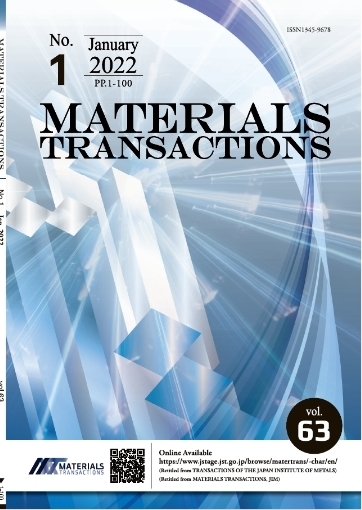Nanoscale Evaluation of Strength and Deformation Properties of Ultrahigh-Purity Aluminum
Masashi Yoshida, Tsunetaka Sumomogi, Toshiro Endo, Hiroshi Maeta, Takao Kino
pp. 1-5
抄録
In order to investigate the strength and the deformation properties of metals in nearly perfect crystals, the nanoindentation test is performed on aluminum samples with various purities: 99.9999% (6 N), 99.99% (4 N) and 99% (2 N). It is widely known that the strength decreases with increasing purity of metals. On the nanoscale, however, the strength has been revealed to be close to the ideal shear strength, because a nanoscale area is expected to behave as a perfect crystal. In this study, a nanoindentation system that is able to provide indentation load vs penetration depth curves is employed. The experiment is performed on ultrahigh-purity aluminum (99.9999%), and high-purity aluminum (99.99%) and commercial-purity aluminum (99%) so as to discuss the relationship between the purity level and the mechanical properties at room temperature. It is revealed that the penetration depth decreases with increasing purity, and the critical shear stress estimated from the experimental results is close to the ideal shear strength. These results suggest that a perfect crystal is harder than an imperfect crystal. Furthermore, the indentation load vs penetration depth curves indicate a discontinuous deformation of the metals. It is considered that these discontinuities are caused by the existence of impurities or the initiation and the multiplication of dislocations in these samples.










